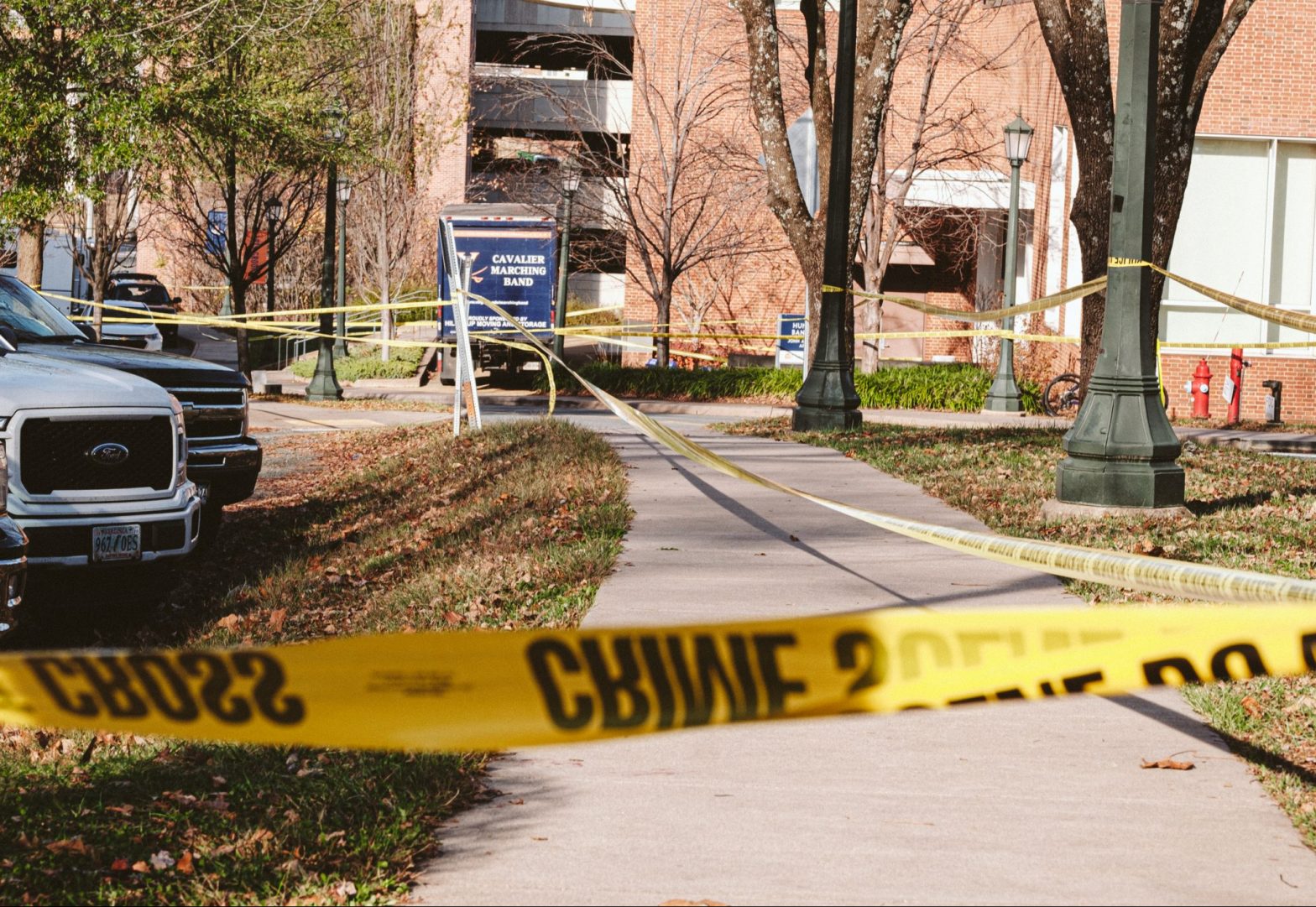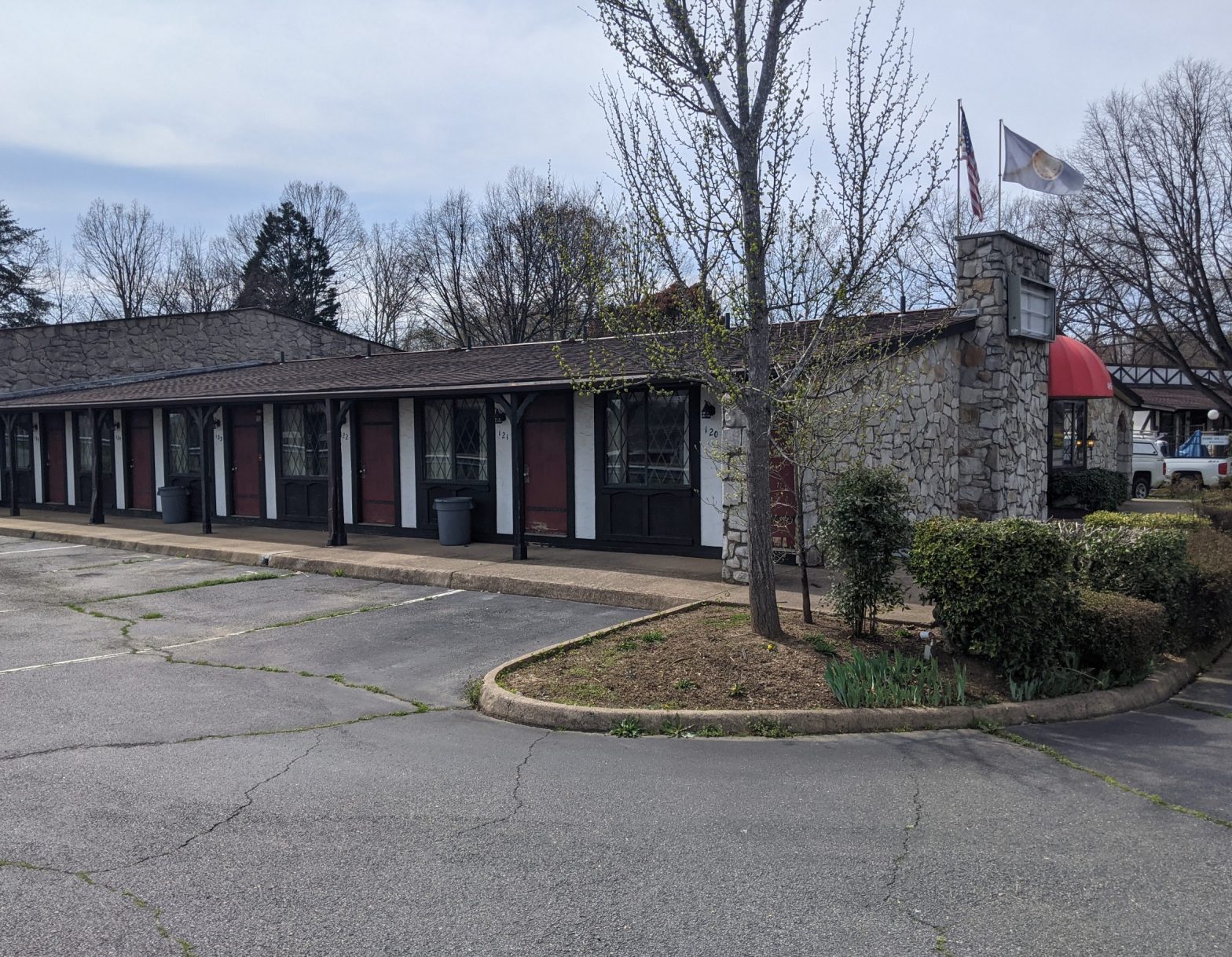Since former Charlottesville police chief RaShall Brackney’s controversial firing last fall, Captain Latroy “Tito” Durrette has acted as the CPD’s interim chief, while the city searches for the department’s next official leader.
At noon on November 28, the city announced the final three police chief candidates: Warrenton Police Department Chief Michael Kochis, Loudoun County Sheriff’s Office Commander Easton McDonald, and Durrette. Six hours later, the Police Civilian Oversight Board hosted a forum, asking the candidates questions submitted by community members covering a wide range of topics, including community policing, gun violence, and mental health.
This summer, the city hired POLIHIRE to lead the police chief search. The D.C.-based firm used feedback from more than 40 meetings with community stakeholders and residents, as well as an online community survey, to develop a recruitment brochure, and published it nationwide. After receiving 19 applications, acting City Manager Michael Rogers formed an executive screening committee to interview the top five candidates. The committee eliminated one candidate and another declined to move forward, leaving Durrette, Kochis, and McDonald as the finalists.
Durrette touted his 30 years at the CPD. “I care about this community. … We all have had trauma and I want to be a part of that healing process,” he said.
McDonald, who has worked in law enforcement for 25 years, shared that he was attracted to Charlottesville’s desire for 21st-century policing, while Kochis, who has more than 20 years of policing experience, similarly appreciated calls for community involvement in policing, pointing to the PCOB.
Durrette stressed that policing is more than just enforcing laws—it’s building connections with the community, listening to their concerns, and taking action. “We have to recognize [that] in 2017, we failed. We have to change that perception,” he said.
“We haven’t always been on the right side of justice,” added Kochis, who has led the WPD since 2020. “We’re going to be hiring officers who aren’t going to remember 2017, and shame on us if we don’t teach them [and] learn from that.”
Discussing visions and ideas for community policing, McDonald, who has worked for the Loudoun County Sheriff’s Office since 2001, shared that he expects officers to get to know people living in the areas they’re assigned to patrol and help improve the neighborhood.
In Warrenton, Kochis explained, the department formed a community action team including residents, faith leaders, business owners, and other stakeholders. Over the past two years, the team has met monthly to review department policies.
Regarding the PCOB, Kochis said he was a “fan” of the board, but was “not convinced it’s been sold [or] communicated directly to the rank and file because it doesn’t have to be a negative thing—we have the same goal in mind.”
To reduce and eliminate disparate policing, McDonald encouraged the community to call in both compliments and complaints about officers, so the department can identify where it needs additional training and education. Kochis emphasized the importance of training including community members, so officers can understand the significant impact of implicit bias. Durrette pointed to community events like the forum as a way to “change that behavior and culture.”
Two candidates have previously stirred up controversy. In 2014, McDonald accidentally shot his teenage daughter when she came home after sneaking out and he mistook her for an intruder. He was not charged with a crime. According to Brackney, Durrette, a former SWAT team commander, was on a “performance improvement plan” under her leadership—last year, the former chief disbanded the team for severe misconduct.
Later in the forum, all three candidates expressed support for the Marcus Alert system, which allows behavioral health experts, instead of law enforcement, to respond to certain calls related to mental health, substance use, and developmental disabilities. (It remains unclear when the system will be fully implemented in Charlottesville due to legislative setbacks.) They also stressed the need for community partnerships and programs to end gun violence, such as activities for youth.
Kochis explained how he’s brought down gun violence in Warrenton by meeting with community stakeholders and members, and utilizing procedural justice, which is “giving people a voice, explaining the why,” he said.
For months, the CPD has had a severe staffing shortage. To recruit and retain more officers, McDonald emphasized providing adequate training and equipment, while Kochis pointed to his leadership in Warrenton—by involving the rank and file in the department’s strategic plan, he was able to fill every vacancy.
The candidates also vowed to recruit more officers of color. McDonald suggested meeting with Black organizations at colleges and universities, and talking with people who may have never have considered joining law enforcement. Durrette recommended building relationships with young people, and getting them interested in the profession. Kochis cited his efforts to recruit more women, too—the WPD is now 24 percent female.
Finally, the candidates advocated for building relationships with unhoused people, showing empathy, and connecting them with critical services.
Rogers will evaluate the candidates’ forum responses and “determine the best selection for our community,” he said.












